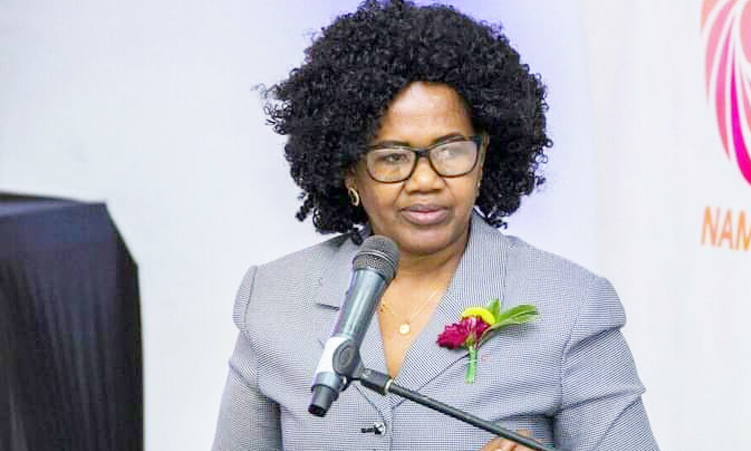The Bank of Namibia has launched its Instant Payment System project which is set to make financial infrastructure available to rural and informal economies to reduce the cost of banking.
According to finance and public enterprises deputy minister Maureen Hinda-Mbuende during the launch of the project in Windhoek last week, the system will reduce transaction costs.
“This system will enhance transaction speed, reduce cost for customers and make it easier for people to transact in areas with little or no traditional banking facilities,” said Hinda-Mbuende.
The system leverages off mobile phones and stable connectivity, she added.
A survey conducted in Namibia in 2017 showed that more people now have access to financial services compared to several years ago.
In 2017, 78% of Namibian adults were found to be financially included. This means they have accounts or use services offered by banks or other financial institutions.
The proportion of the financially excluded population has decreased to 22% in 2017 from 31% and 51% reported in 2011 and 2007.
According to the deputy minister, this suggests a positive trend towards financial inclusion in the country.
“Thanks to initiatives such as the Basic Bank Account initiated by the Bank of Namibia and the widespread issuance of electronic money by the banking sector, we see a higher penetration of financial services across the country,” said Hinda-Mbuende.
However, she said financial inclusion is not just about opening bank accounts.
“It encompasses the availability and equality of opportunities for all Namibians to access affordable financial services regardless of whether they live in rural or urban areas,” said Hinda-Mbuende.
She added that it is vital for citizens to be educated in order to make informed financial decisions.
During the launch, central bank governor Johannes!Gawaxab said the project seeks to bridge a gap by establishing an efficient, accessible and affordable public payment infrastructure.
“This initiative targets rural communities and the informal economy, envisioning a future where transactions are seamless and instantaneous,” said !Gawaxab.
According to !Gawaxab, the project aims to achieve four key policy objectives. Mainly enhancing accessibility, achieving full payment interoperability by 2025, modernising the financial sector and ensuring a secure National Payment System.
“Despite notable achievements in financial inclusion, segments of the population remain underserved,” said !Gawaxab.
Stay informed with The Namibian – your source for credible journalism. Get in-depth reporting and opinions for
only N$85 a month. Invest in journalism, invest in democracy –
Subscribe Now!






